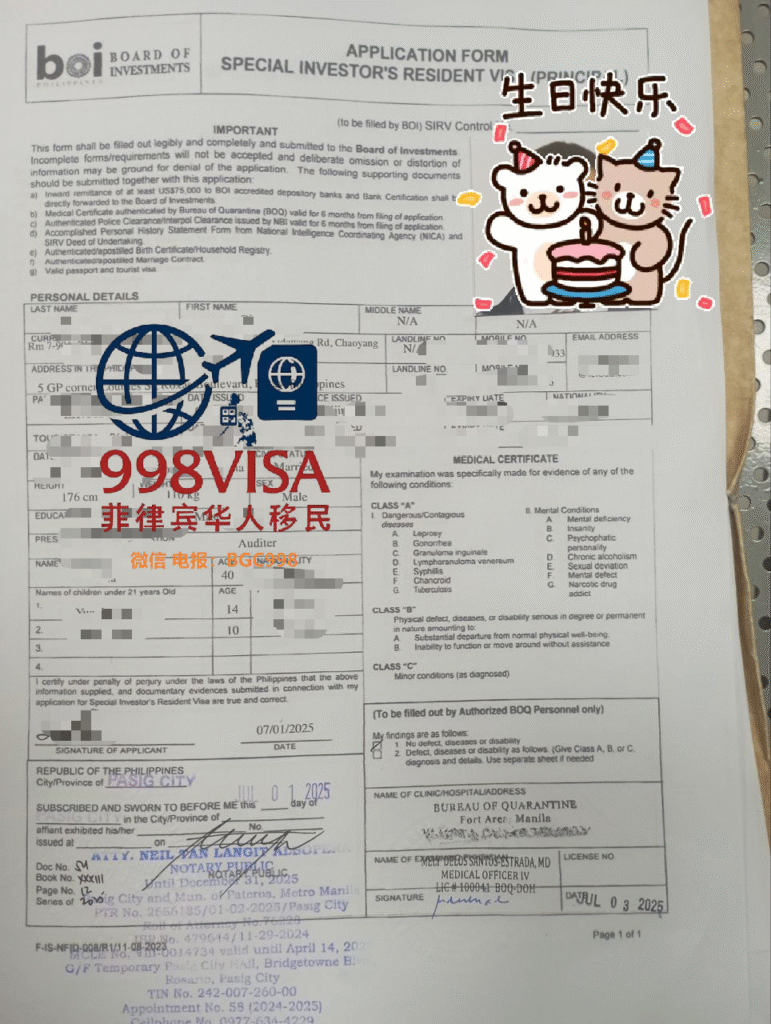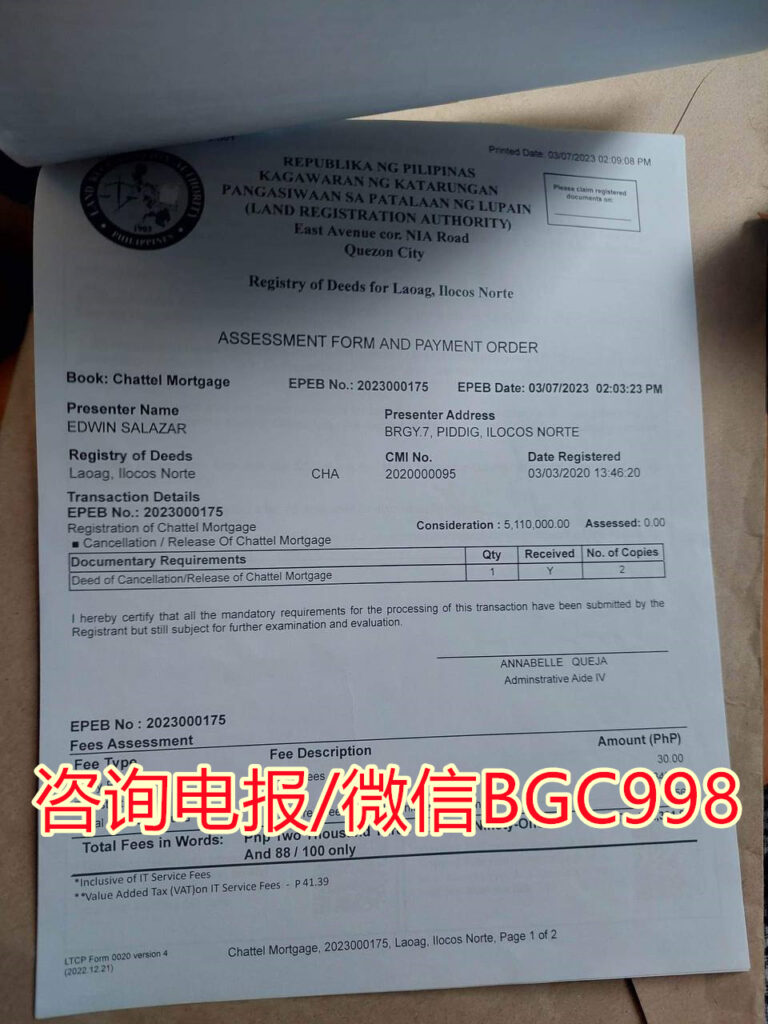Can a Philippines marriage visa (13A) holder buy property in the country?
A Philippines marriage visa (13A) holder cannot directly own land in their own name, as Philippine law restricts land ownership to Filipino citizens. However, because the foreign spouse is married to a Filipino citizen, the property may be legally purchased under the Filipino spouse’s name. In addition, the couple can acquire condominium units, as foreigners are allowed to own condo units provided that foreign ownership does not exceed 40% of the total building. Another option is long-term land leasing, where the foreign spouse may legally lease land for up to 50 years, renewable for another 25 years. The 13A visa provides permanent residency, which means the foreign spouse can remain in the Philippines indefinitely and benefit from shared property ownership within the marital partnership. Many couples use this legal structure to invest in homes, ensuring security and stability for their family.

Does a Philippines marriage visa (13A) make taxation easier for foreigners?
Yes, the Philippines marriage visa (13A) provides long-term residency, which simplifies tax obligations for foreign spouses. Once the foreign spouse becomes a permanent resident, they are considered a resident taxpayer, meaning they are subject to taxes on income earned within the Philippines. However, this also allows them to take advantage of tax treaties that the Philippines has with other countries to avoid double taxation. The Bureau of Internal Revenue (BIR) issues a Tax Identification Number (TIN) to 13A holders, enabling them to legally work, start businesses, or receive other taxable income. This clarity makes it easier for foreigners to comply with Philippine tax laws without constantly changing status due to temporary visas. For couples building a financial future together, the 13A visa provides a stable legal foundation for both tax compliance and long-term investment planning.
Can a Philippines marriage visa (13A) holder apply for dual citizenship?
A Philippines marriage visa (13A) does not automatically grant Philippine citizenship, but it provides a path toward it. After holding permanent residency for a minimum of 10 years, a foreign spouse may apply for naturalization as a Philippine citizen, provided they meet additional requirements such as fluency in English or Filipino, good moral character, and integration into Philippine society. In some cases, if the foreign spouse and Filipino spouse have children, or if the foreign spouse has rendered notable service to the Philippines, the naturalization process may be expedited. Dual citizenship is possible depending on the foreign spouse’s home country laws. The 13A visa is therefore a key step toward long-term settlement, as it establishes legal residence and opens the door to eventual citizenship for those who wish to fully embrace life in the Philippines.

Is the Philippines marriage visa (13A) affected by divorce?
Yes, the Philippines marriage visa (13A) is directly tied to the validity of the marriage between the foreign spouse and the Filipino citizen. Since divorce is not recognized in the Philippines (except for Muslims under certain conditions), annulment or legal separation may affect the visa. If the marriage is annulled, the basis for the 13A visa is lost, and the foreign spouse may lose residency privileges unless they qualify for another type of visa. However, if the divorce is filed and recognized abroad, the Filipino spouse is considered legally single under foreign law, which can also impact the validity of the marriage visa. In such cases, the Bureau of Immigration reviews each situation individually. For couples facing marital issues, legal guidance is recommended to understand how it may affect immigration status and whether alternative visa pathways should be considered.
Can a Philippines marriage visa (13A) holder own a business in the country?
Yes, a Philippines marriage visa (13A) holder can engage in business activities in the Philippines, though certain restrictions apply. Foreigners generally cannot own more than 40% of companies engaged in businesses restricted to Filipinos, such as mass media or land ownership. However, in other industries such as retail, export, or service-based businesses, the foreign spouse may legally own and operate a company in partnership with their Filipino spouse. The advantage of the 13A visa is that it removes the need for a separate special investor’s visa, allowing the foreign spouse to directly register a business with the Department of Trade and Industry (DTI) or the Securities and Exchange Commission (SEC). This opens up many opportunities for entrepreneurial couples to build long-term financial stability while remaining fully compliant with Philippine law.

Does the Philippines marriage visa (13A) require language proficiency?
No, the Philippines marriage visa (13A) does not require the applicant to demonstrate proficiency in English, Tagalog, or any local language as part of the approval process. The main requirements focus on the validity of the marriage, good moral character, health clearances, and proof of financial stability. However, while not mandatory, having basic communication skills in English or Filipino is highly beneficial for everyday life, integration into the community, and dealing with official transactions. Language ability may also be an advantage if the foreign spouse later applies for Philippine citizenship, as naturalization laws require an applicant to be able to speak and write in English, Spanish, or a principal Philippine language. For daily living, the 13A ensures residency regardless of language, but learning the basics significantly enriches the experience of living in the Philippines.

What are the financial requirements for a Philippines marriage visa (13A)?
Applicants for a Philippines marriage visa (13A) must demonstrate financial capacity to support themselves and their Filipino spouse. This does not mean they must show large sums of money, but they need to provide evidence of a stable source of income, savings, or pension to ensure they will not become a financial burden on the state. Bank statements, employment certificates, or proof of pension are commonly accepted documents. While there is no fixed minimum income stated in law, immigration officers assess whether the applicant’s financial situation is sufficient for reasonable living in the Philippines. For retirees, pension certificates or retirement funds are acceptable proof. For working spouses, employment contracts or business permits can be submitted. Meeting this requirement reassures immigration authorities that the couple can maintain a secure life in the country, strengthening the overall application for the 13A visa. ★
针对以上话题您是否想了解更多?欢迎联系我们咨询
English/Tagalog Inquiries :
WeChat : dpylanayon
Telegram : @Diadem_Pearl
EMAIL: dplanayon.royalewonders@gmail.com
VIBER:+ 63 939 526 6731 / +63 9176523432
WhatsApp / PHONE:+639176523432
中文咨询
微 信:BGC998 电报@ BGC998 或 微信:VBW333 电报@VBW777
马尼拉998VISA是马尼拉MAKATI 实体注册公司,在马尼拉已经有超过19年服务经验,客户隐私安全保护服务可靠,业务提交可以安排工作人员上门取件或前往我们办公室提交。马尼拉政策时常变化,且信息发布有时间差,有需要相关业务最新资讯欢迎联系我们。
欢迎关注我们的电报TELEGRAM频道
998官方资讯频道 @FLBYM998
日常案例分享频道 @FLBYM998CASE

















 一、什么是 Bureau of Immigration Clearance Certificate(ECC)?
一、什么是 Bureau of Immigration Clearance Certificate(ECC)? ECC-A
ECC-A
 官方认证 | 专业清关团队 | 快速通道
官方认证 | 专业清关团队 | 快速通道 微信 / 电报咨询:
微信 / 电报咨询:





















 如果您也正在考虑办理
如果您也正在考虑办理




